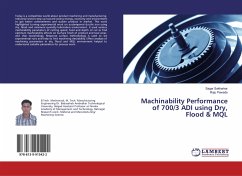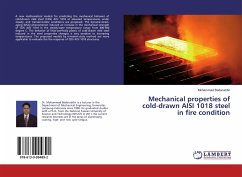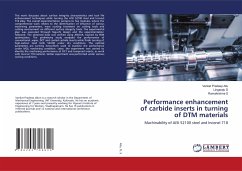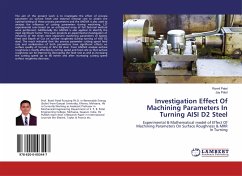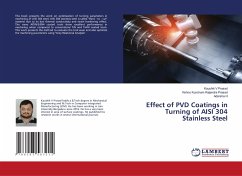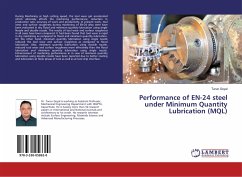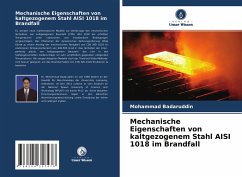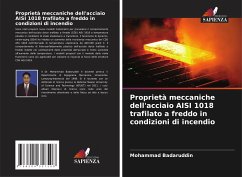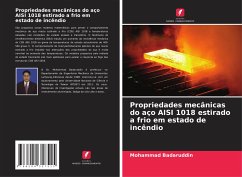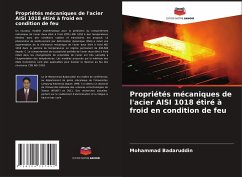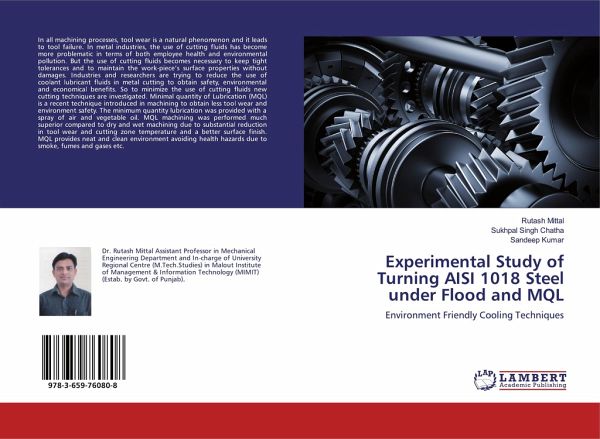
Experimental Study of Turning AISI 1018 Steel under Flood and MQL
Environment Friendly Cooling Techniques
Versandkostenfrei!
Versandfertig in 1-2 Wochen
26,99 €
inkl. MwSt.

PAYBACK Punkte
13 °P sammeln!
In all machining processes, tool wear is a natural phenomenon and it leads to tool failure. In metal industries, the use of cutting fluids has become more problematic in terms of both employee health and environmental pollution. But the use of cutting fluids becomes necessary to keep tight tolerances and to maintain the work-piece's surface properties without damages. Industries and researchers are trying to reduce the use of coolant lubricant fluids in metal cutting to obtain safety, environmental and economical benefits. So to minimize the use of cutting fluids new cutting techniques are inv...
In all machining processes, tool wear is a natural phenomenon and it leads to tool failure. In metal industries, the use of cutting fluids has become more problematic in terms of both employee health and environmental pollution. But the use of cutting fluids becomes necessary to keep tight tolerances and to maintain the work-piece's surface properties without damages. Industries and researchers are trying to reduce the use of coolant lubricant fluids in metal cutting to obtain safety, environmental and economical benefits. So to minimize the use of cutting fluids new cutting techniques are investigated. Minimal quantity of Lubrication (MQL) is a recent technique introduced in machining to obtain less tool wear and environment safety. The minimum quantity lubrication was provided with a spray of air and vegetable oil. MQL machining was performed much superior compared to dry and wet machining due to substantial reduction in tool wear and cutting zone temperature and a better surface finish. MQL provides neat and clean environment avoiding health hazards due to smoke, fumes and gases etc.



